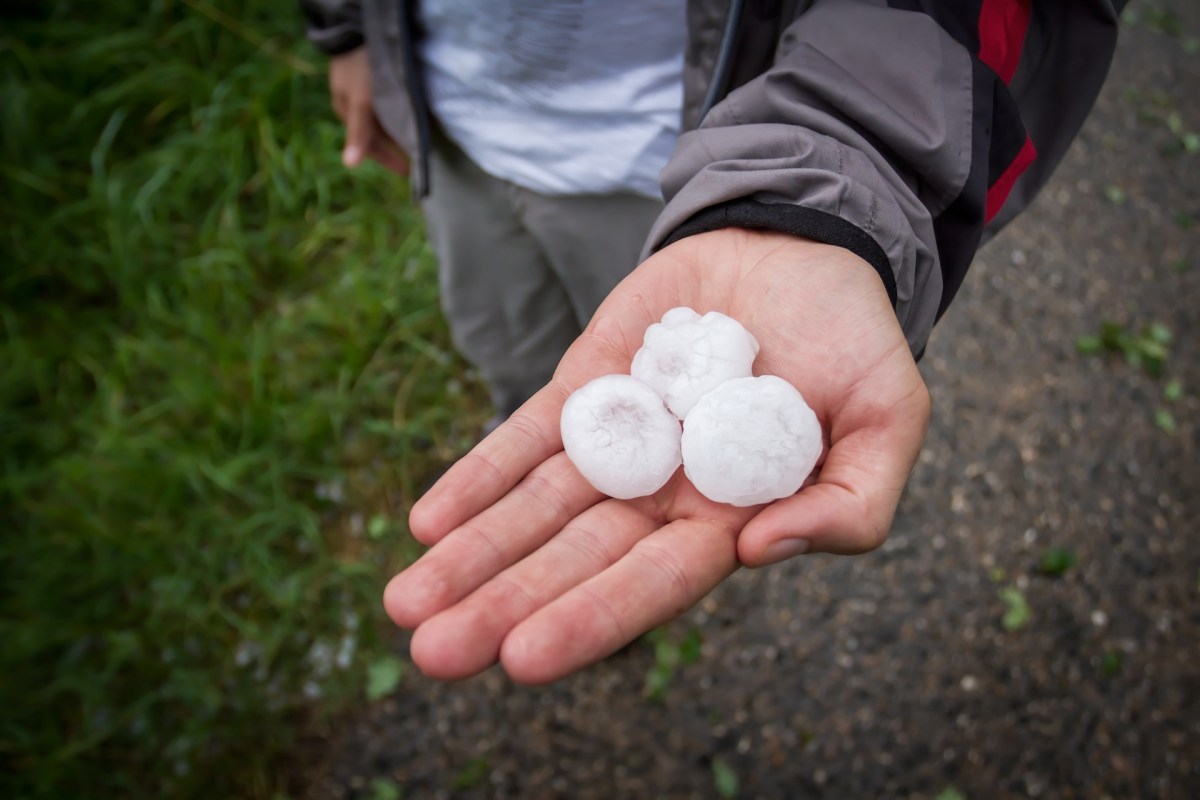A new study found that a marine heat wave in Spain contributed to a record-breaking hail storm in 2022 that killed one person and caused numerous injuries and material damage.
What happened?
As detailed in the study, published in the journal Geophysical Research Letters, large hailstones measuring up to five inches in diameter pummeled the Gerona province in northeastern Spain.
The extreme weather event, which occurred on Aug. 30, 2022, damaged crops and personal property, injured 67 people, and caused the first hail-related fatality since 1997.
Prior to the hail storm, the Iberian Peninsula had been experiencing an unprecedented marine heat wave that stretched on for six weeks. As a result, the surface sea temperature was an average of nearly six degrees Fahrenheit warmer than normal. Researchers believe that the marine heat wave "influenced the hail size growth of the Gerona supercell."
Why is this concerning?
According to the study, scientists concluded that the hailstorm would've been "less severe" in a pre-industrial climate, with the social and economic consequences of the event also minimized.
"This research is important as it is a cautionary tale of how continued climate change will not only increase the likelihood of marine heat waves, but also other elements of Earth's interconnected cycles," Phys.org wrote in a summary of the findings.
The publication added that higher-than-normal sea-surface temperatures are known to have a "direct impact" on the frequency and intensity of heat wave events.
Human activities have caused temperatures on our planet to rise, and the warming has acted as a powerful fuel for extreme weather events.
According to NASA, the last 10 years have been the hottest ever recorded. In 2023, the Earth was about 2.45 degrees Fahrenheit warmer than the preindustrial average.
What can be done about supercharged weather events?
The 2015 Paris Agreement, a global treaty signed by 195 parties, aims to limit warming to 2.7 degrees Fahrenheit above preindustrial levels.
Coal, oil, and gas generate more than 75% of all planet-warming pollution, according to the United Nations, meaning that transitioning away from these dirty fuels is the best thing we can do. While that may sound like a daunting task, many countries are making progress toward implementing a clean-energy grid, with local governments often getting in on the action.
Early this year, two energy companies completed the largest solar project in the history of Wisconsin. Alternative fuels like hydrogen are also being used more widely.
Meanwhile, something as simple as switching to LED light bulbs or unplugging energy vampires will eliminate hundreds of pounds of carbon pollution annually and save you money, too.
Join our free newsletter for cool news and cool tips that make it easy to help yourself while helping the planet.









